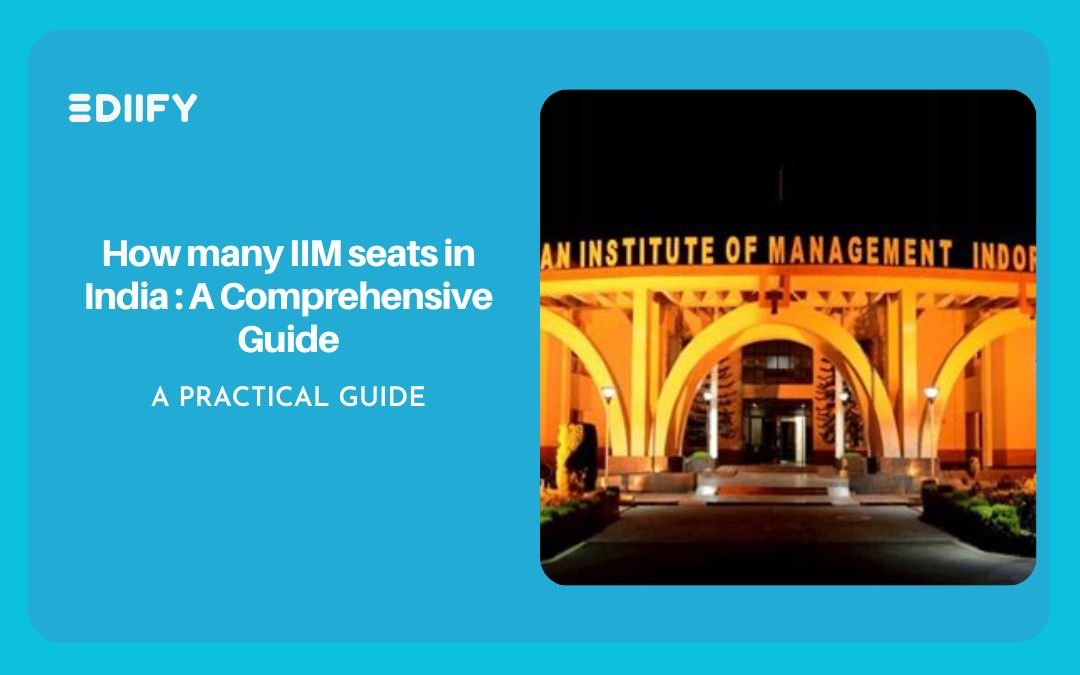The Number of IIM Seats in India: Your Definitive Guide
How many IIM seats in India : A Comprehensive Guide. Understanding the availability of seats in the Indian Institutes of Management (IIMs) is pivotal for aspiring management professionals aiming to embark on their educational journey in these esteemed institutions. In this comprehensive guide, we will delve into the total number of seats across all IIMs in India, factors influencing seat allocation, and pathways for admission.

Total Number of IIM Seats
Flexible Seat Allocation
The total number of seats in IIMs can fluctuate annually due to institute policies, program variations, and regulatory directives.
Program-Specific Allocation
Each IIM offers diverse programs, including the flagship Post Graduate Programme in Management (PGP), Executive MBA, and Fellow Programme in Management (FPM). Seat availability for each program may differ based on demand and institute capacity.
Expansion Initiatives
Many IIMs have expanded their infrastructure and program offerings over time, leading to an augmentation in the total number of available seats for management education.
Factors Influencing Seat Allocation
Institute Policies
IIMs craft their own admission policies, criteria, and seat allocation processes, considering factors such as academic performance, entrance exam scores, diversity, and reservation norms.
Government Regulations
Operating under the aegis of the Ministry of Education, Government of India, IIMs adhere to government regulations and guidelines that can influence seat allocation, reservation policies, and expansion endeavors.
Demand-Supply Dynamics
The equilibrium between demand for management education and the pool of qualified candidates plays a pivotal role in seat allocation decisions. Institutes strive to balance demand and supply while upholding academic excellence.
Admission Avenues
CAT: The Gateway
CAT stands as the primary entrance exam for IIM admissions and other premier management institutes in India. Performance in CAT serves as a fundamental determinant for seat allocation in IIMs.
Alternative Entrance Exams
While CAT remains predominant, some IIMs may accept scores from alternative entrance exams like GMAT for specific programs or candidate categories.
Reservation Norms
IIMs adhere to reservation policies mandated by the Government of India, reserving a percentage of seats for categories including Scheduled Castes (SC), Scheduled Tribes (ST), Other Backward Classes (OBC), Economically Weaker Sections (EWS), and Persons with Disabilities (PWD), in accordance with government regulations.
Conclusion
While the total number of seats in IIMs may fluctuate, these premier management institutions continue to attract top talent and deliver world-class education. Aspiring candidates must acquaint themselves with the admission process, eligibility criteria, reservation norms, and entrance exams to optimize their chances of securing a seat in an IIM. Additionally, staying abreast of changes in seat allocation policies and program offerings is imperative for informed decision-making during the admission process.




